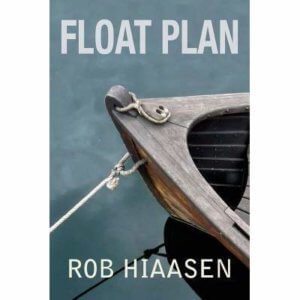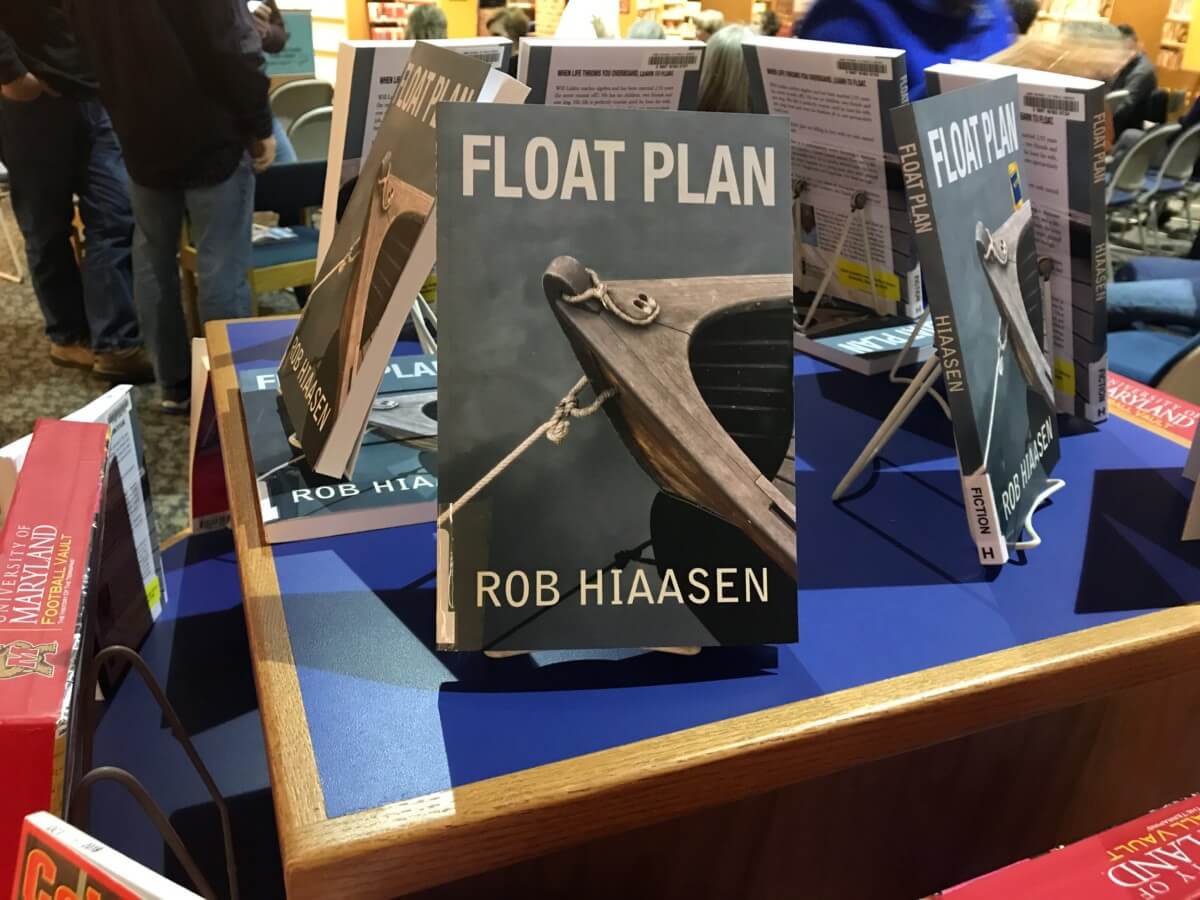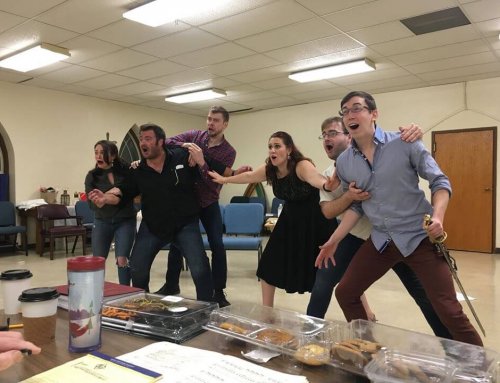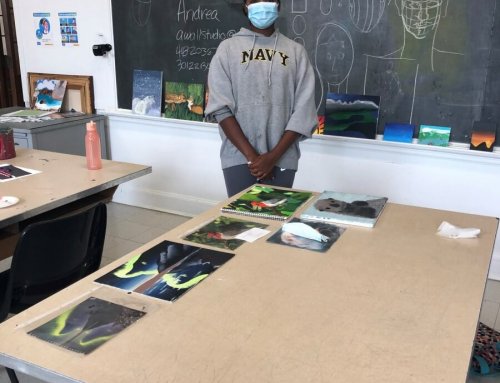On October 19, 2018 family, friends and colleagues joined together to celebrate the life and the words of Rob Hiaasen with the release of his final novel. For the last few years, Rob had been working on the story. After his death on June 28 during a shooting in the Capital Gazette’s newsroom, publisher Kevin Atticks reached out to Kevin Cowherd about the book.
Cowherd and Rob had been friends for over 25 years, and Atticks wanted permission from Rob’s family to publish the book and donate its proceeds to charity. Cowherd reached out to Maria, Rob’s wife, who liked the idea, and worked with Atticks to ultimately publish Float Plan through the publishing company Apprentice Press. Because of the way in which Rob and his four colleagues were killed, they decided the proceeds should go to Everytown for Gun Safety, a nonprofit organization advocating for gun control and against gun violence.
In his welcome speech, Atticks mentioned that 2,500 copies of Float Plan had been sold since the book’s release.
Skip Auld, CEO of AACPL System, spoke of how honored he was to hold the reading at one of the AACPL libraries. He believes that the release of the book is a “…triumph over tragedy and [provides] hope for a more peaceful world…” He announced that copies of Float Plan will also be available through AACPL, and could be checked out that evening.
Kevin Cowherd, a long-time writer for the Baltimore Sun, then spoke of his and Rob’s friendship. Cowherd once asked Rob the premise of the mysterious book he was writing. Rob’s response was “very Rob” in his opinion: “…it’s about a guy and a girl, and they fall in love and some other stuff.”

Float Plan is “about a guy and a girl, and they fall in love and some other stuff,” according to the late author.
After reading it, Cowherd saw his friend in the big-hearted protagonist. He still wonders, however, where that bizarre first chapter came from. While Rob was very much like the protagonist, Cowherd made sure that everyone knew, to the best of his knowledge, Rob never did anything half as crazy as described in the first nine pages of the book.
Tim Prudente, a writer under Rob at the Gazette, spoke about Rob’s job as his editor starting in 2011. Rob encouraged his writers to get out and discover their communities, as Prudente learned when he sent him on a story about a house he had passed on his way into work one morning.
Rob told Prudente the home with a front yard covered in weeds waist-high. Prudente was dispatched to write it up. It turns out that the weeds were not weeds at all, but were wildflowers planted by the gentleman that lived in the house. The man had also planted wildflowers in the yards of other houses he didn’t own. While it may have seemed like a fool’s errand, Rob’s desire to discover his community led Prudente to a fairly interesting story.
Prudente read a passage concerning the protagonist being assigned a story on cicada recipes. The passage sounded familiar to Prudente. After doing some research, he realized that Rob himself posted an article in the Capital in April 2015 about recipes for cicadas. Apparently, Rob wrote what he knew.
Rick Hutzell, fresh off winning the National Press Association’s Editor of the Year award earlier that day, talked of how he and Rob would often edit each other’s columns. Hutzell said that Rob’s columns were very much about “voice.” He joked that the sense of place he often sought in Rob’s work was discovered the moment he started reading Float Plan.
Hutzell also revealed Rob would take field trips away from the office (“sometimes going to Kent Island for crab soup for lunch… in the summer!”) to “gather local color for the book.” That explains why no one could never find him when they needed him. The passage he chose to read was one having to do with a gentleman with Alzheimer’s. The passage is significant to Hutzell because both he and Rob had relatives that fought the disease.
Maria Hiaasen thanked the audience on behalf of the family. To see the number of people that had come out to celebrate his book, she said, would have definitely “rocked Rob’s world.” She noted that her husband loved words, being married, and his family. He was a renaissance man and apparently a “thief of ideas.” He’d often stop her mid-sentence and ask her to repeat something she’d just said because it was a “good line.” He’d then take it down in his notebook for later.
While many that read his columns assumed a sense of who Rob Hiaasen was as a person, it was nice to hear the personal stories of his friends and family completely matched these assumptions. Many of the things they shared weren’t big or grand. But these were the things that mattered. They spoke of his big heart and his sense of humor. His love for his family, his job and the places he lived shone brightly. And the final story he published seems to be a love letter to those things he loved the most.
Float Plan is available from AACPL, or for purchase on Amazon or wherever books are sold. Proceeds from the book will go to Everytown for Gun Safety.








Leave A Comment